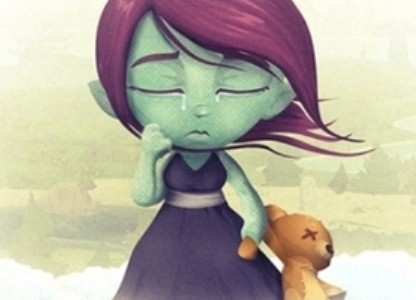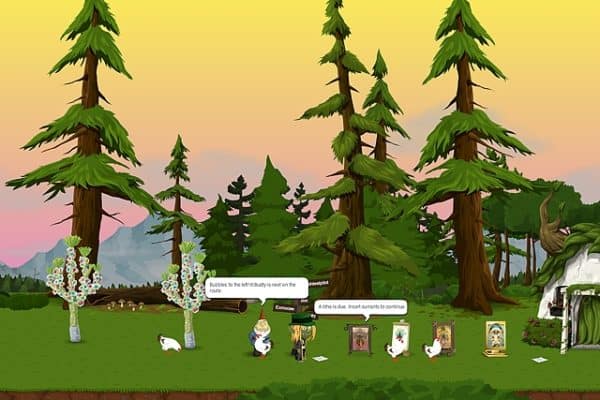How multiplayer game Glitch was rescued by its fans

There’s no crying in video games. Except there is in the innovative Glitch, which now has a second life thanks to its fans. On December 9, 2012, developer Tiny Speck permanently shut down its multi-player online game, called Glitch. The game had developed a small but loyal fan base, but lacked the scale necessary to continue. It had been online for only a year, not counting a long stretch in closed beta status. Fans reacted to its closure as if to a death in the family.
So beloved was the game that a crowdfunding campaign to produce a hardcover book of its artwork raised $114,000, on an ask of only $17,000.
These are funny times. We’re now living in an age in which people can feel intense nostalgia for cultural properties that are less than five years old. But there was, admittedly, something a little special about Glitch.
For those who were into MMOs (massively multiplayer online games), Glitch’s art direction, gameplay, and above all its writing and narrative qualities, were recognized as being top-notch. That was hardly an accident; the team that Tiny Speck put together, with the help of funding from tony Silicon Valley investors Accel Partners and Andreessen Horowitz, drew heavily from Ludicorp, the company that created Flickr.
But that wasn’t quite enough to save it from disappearing in the undertow created by an environment in which videogames are dominated by shooter games and a culture of arrested adolescence.
So it came as a surprise the other day when Tiny Speck announced that it was relinquishing ownership of the game’s 10,000+ assets to the public domain, for anyone to do whatever they wish with.
It was partly a recognition that the game “belonged” to its players in a real sense, even though none of them had an actual hand in its creation. The “licensing restriction” section of Glitch’s announcement reads, “Our intention is to dedicate these works to the public domain and make them freely available to all, without restriction.” A bold, or perhaps irresponsible, move in today’s hypercompetitive world of patent trolls and hyperlitigation. What if putting this work into the public domain, though, helps spur innovation, compared with the status quo in which intellectual property is protected at all costs?

Most of the time, when a beloved but underappreciated creative initiative goes bust, its component parts are warehoused and forgotten, intellectual property norms preventing their use for the foreseeable future. In the case of Glitch however, Tiny Speck has freed anyone who wants to use Glitch from the threat of some random lawyer popping up with a “cease and desist” and preventing the game’s old users from doing whatever they like with it.
Now, any schoolkid with a dream of creating a mock-up for a videogame of their own, or perhaps simply a dream of resurrecting Glitch, can do so without penalty or fear, and can do so using top notch artwork. Butterfield has said “we hope it will be a valuable resource for indie developers, students, artists and even commercial projects.”
Glitch actually began its life as early as 2002 at Ludicorp, led by Tiny Speck co-founder Stewart Butterfield. While Butterfield and his team were working on another MMO called Game Neverending, they incidentally created what would become the online photo sharing service Flickr as part of the process. Yahoo acquired both Flickr and Ludicorp in 2005.
In the post announcing Glitch’s closure, the company mentioned that Tiny Speck as a company would continue and that it had “developed some unique messaging technology with applications outside of the gaming world”: a collaboration tool called Slack.
Could Slack be the next Flickr? Given that its focus is remote collaboration, it’s not likely to be acquired by Yahoo, given that company’s work-from-home policy.
In the meantime, Tiny Speck Inc. has given a gift to fans of its old game, and perhaps a spur to help new game developers initiate projects of their own.
_________________

Terry Dawes
Writer
